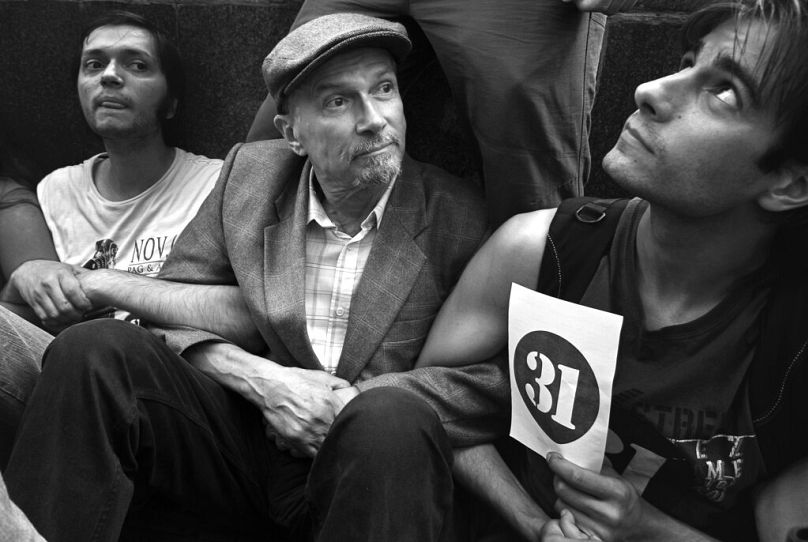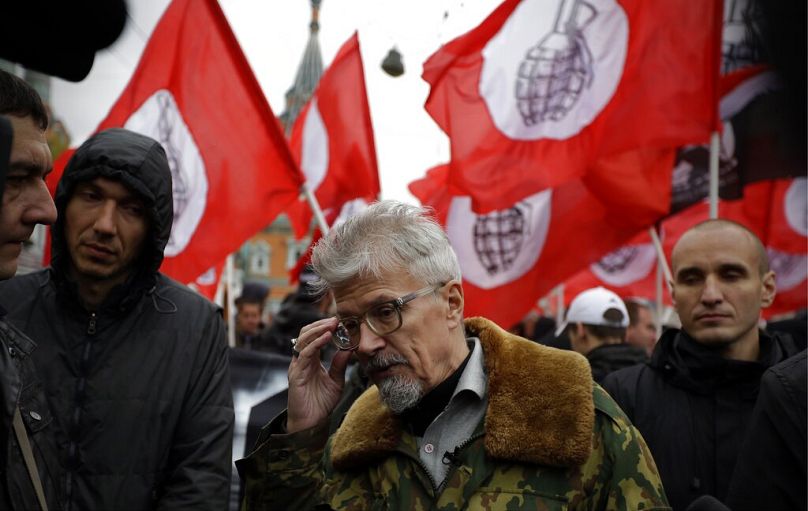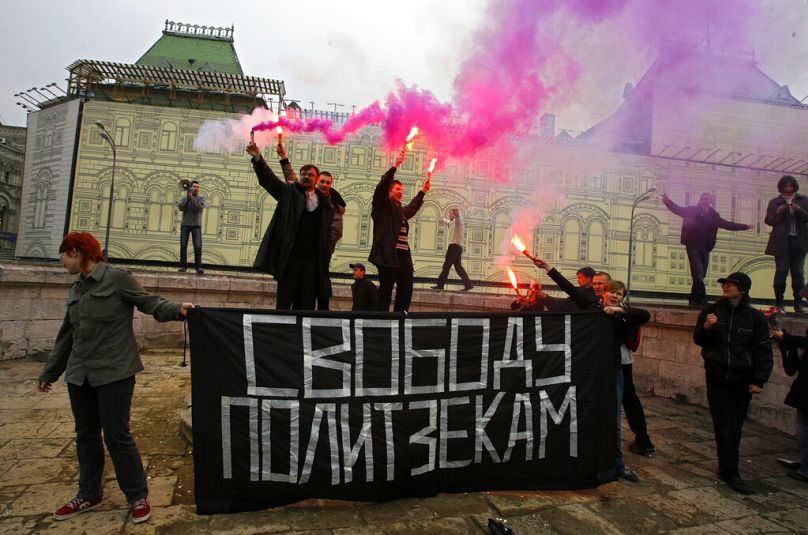Ben Whishaw will play the founder of the National Bolshevik Party in a film by Russian director Kirill Serebrennikov, who was recently released from a suspended prison sentence.
The sensational story of Eduard Limonov, Russian dissident and founder of the outlawed National Bolshevik Party will be told in a new film by similarly outspoken Russian director Kirill Serebrennikov, starring British actor Ben Whishaw.
Based on a biographical novel by French journalist Emmanuel Carrère, the film – entitled Limonov, the Ballad of Eddie – will chart the early life of Limonov, who was born in what is now the besieged city of Kharkiv in Ukraine.
The biopic was midway through shooting in Russia when Russian forces invaded Ukraine in late February. Entire film sets reproducing scenes from 1970s New York had to be dismantled and Serebrennikov, who had only recently been released from a travel ban, has since left the country. The remainder of the filming will be completed at an undisclosed location elsewhere in Europe.
A prominent Kremlin critic and proponent of LGBT rights, Serebrennikov was first arrested in 2017 on contested fraud charges and spent 18 months under house arrest. In June 2020 he was handed a three-year suspended prison sentence and finally permitted to travel for the first time in January this year.
In an interview with Variety magazine published on Wednesday, the director revealed he had cast Ben Whishaw, the Golden Globe-winning English actor best known outside the UK for his turn in the James Bond franchise as Q.
"Eddie needs a brilliant actor and Ben fits that description," he said. "Aside from reading the books and seeing millions of interviews, he comes to Eddie via his instinctive, animal-like nature; not from the head, but from deep inside his gut."
Growing up, Serebrennikov said, he had regarded Limonov as "a kind of avant-garde rockstar" and his party a "club for thinking young people who didn’t want to be part of Russia’s new political establishment".
But he was circumspect over whether or not "Eddie", at once a Soviet Union revivalist and lifelong anti-government agitator, would have supported today's war in Ukraine, which has reduced swathes of his city of birth to rubble.
Lifelong dissident's party vindicated after death
The new film covers Limonov's life up to around 2004, after his early release from a prison sentence for illegal possession of weapons. He had written eight books while he was behind bars, in under two years.
Born Eduard Veniaminovich Savenko in 1943, Limonov's formative years were marked by petty crime and self-described hooliganism, but also a nascent interest in writing poetry. His early career in verse achieved some success and he and his wife emigrated from the USSR to the United States in 1974.
Limonov worked for a Russian-language newspaper in New York and was influenced by radical politics and punk subculture. His first novel, It's Me, Eddie, shocked many with its bald depictions of an immigrant's sexual adventures, Like the author, its protagonist is harassed by the FBI. After growing disillusioned in New York, Limonov moved to Paris in 1980, where he remained for a decade before returning to Russia in 1991 after the fall of Communism to blaze a political trail.
In 1992 he founded the National Bolshevik Front, an amalgamation of six smaller anti-establishment groups with early members including the controversial political philosopher Aleksandr Dugin. In 1993 this became the National Bolshevik Party (NBP), an ultra-nationalist movement calling for a return to Soviet rule.
The party was characterised by a mixture of far-left and far-right ideology, Soviet nostalgia and skinhead culture, and attention-grabbing direct action in Russia and beyond. It was accused many times of racism and fascism, which its members denied.
Many prominent NBP members were arrested and jailed, including Limonov himself in April 2001. The ageing activist was accused of terrorism – specifically, of trying to raise an army to invade Kazakhstan – and finally convicted on the lesser charge of weapons procurement.
Limonov would be arrested three more times at anti-government rallies in Moscow and St. Petersburg between 2007 and 2009. The NBP was never able to formally register as a party and was dissolved by the Russian state in 2007 for "extremism". After its dissolution, Limonov co-founded anti-Putin umbrella group The Other Russia in 2010.
Despite his anti-establishment stance, Limonov supported the Russian annexation of Crimea in 2014 and backed Russia in the war in the Donbass. He died in Moscow in March 2020 at the age of 77, after a protracted battle with cancer.
In September 2021, the European Court of Human Rights ruled that the dissolution of the NBP had been "unnecessary and disproportionate" and a violation of members' rights. Limonov's two teenaged children were among the six applicants who took case to the ECHR the dissolution of the NBP – each of whom was awarded $10,000 in compensation.














